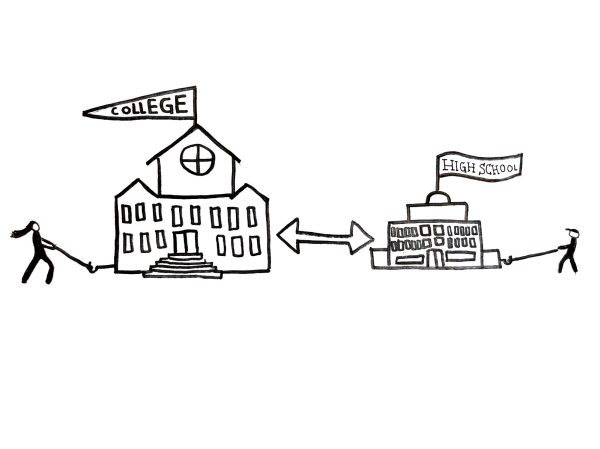Helicopter Parenting: The Detrimental Effects
Some of my friends tell me about how their parents are constantly tracking their phones, monitoring their grades, and never letting them go out. Generally, this phenomenon is referred to as ‘helicopter parenting.’ To me, this seems overbearing and suffocating. We need to remind parents that in order for teenagers to discover their individuality, we must fail and make mistakes. Understanding consequences is essential for young adults, as many of us will be heading off to college in no time.
According to a study carried out by the University of Mary Washington, “Helicopter parenting behaviors may also interfere with feeling a sense of competence because such parental actions can convey the message that parents do not have faith in their child’s abilities. Furthermore, when parents solve problems for their children, then children may not develop the confidence and competence to solve their own problems.” The study examined volunteer student’s well-being against their parents’ levels of control. Students who had over-controlling parents experienced much higher levels of depression and anxiety and were less self-satisfied.
So how can we combat our parents in a respectful way that paves a path for growth? Here are a few strategies that may prove useful:
- Ask for space — this is a good first step to providing your parents with boundaries you would like them to respect.
- Explain to them that in order for you to succeed, you will have to learn to manage failure instead of being coddled.
- Tell them that the best way to support you is to let you explore your own world on your own terms, and that only you can find your own self-fulfillment.
- Genuinely listen to their concerns and explain why you believe you are capable of taking care of the issue
- Ask them to accept both your weaknesses and strengths — using specific examples will help build your case.
- Tell them you appreciate everything they have done for you! All of their concerns come from a place of love, and they just want the best for you, and sometimes don’t realize they got carried away.
- Both you and your parents need to know the difference between psychological needs for autonomy and competence. This means knowing the difference between being negligent and overbearing, and when serious parent involvement is needed to create a successful environment for a student.

Lauren Carvalho is now a senior at Boulder High. While she likes Boulder High, she's never found a club or sport she was truly interested in pursuing in school. Lauren chose to join The Owl staff because she believes it is a great way to get involved with the Boulder High community, and journalism has always interested her. She is a great problem solver and thinks on her feet, so she will be a great addition to The Owl staff. When not at school, Lauren enjoys many typical teenage activities, such as listening to music, binging Netflix, and hanging out with friends. However, her true passion is for medicine. Over summer break, she attended the Johns Hopkins Student Ambassador program, and from...





